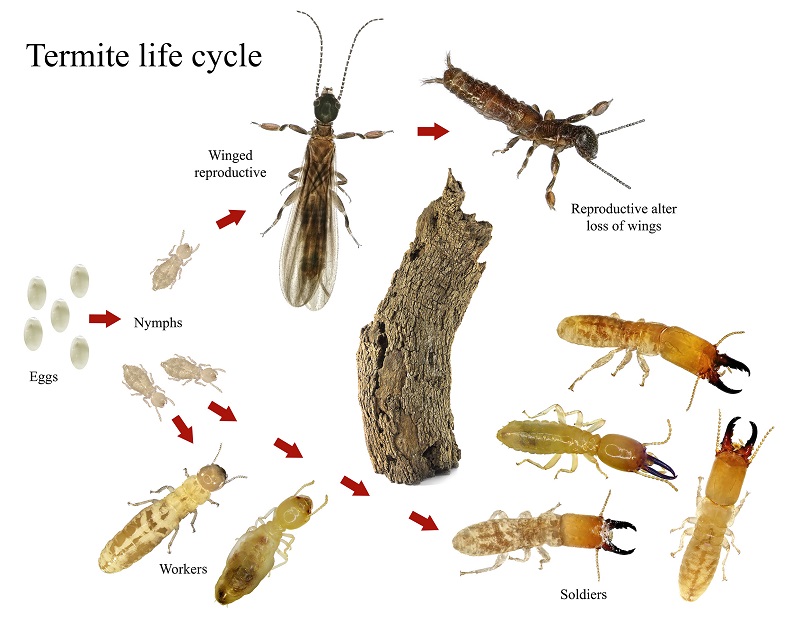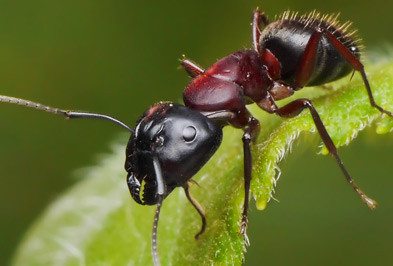Environmental Impact of Parasite Control: Harmonizing Effectiveness With Sustainability
The environmental effect of pest control is a critical issue that needs a fragile equilibrium in between achieving efficiency in taking care of parasites and guaranteeing sustainability of our ecological communities. From the usage of harmful chemicals that seep into our dirt and water to the unplanned consequences on non-target species, the repercussions of conventional insect control methods are far-ranging.
Unsafe Chemicals in Pest Control
The utilization of hazardous chemicals in insect control presents considerable environmental and health and wellness dangers that warrant careful consideration and reduction strategies. Chemicals, herbicides, and insecticides are generally made use of to remove parasites, but their prevalent application can cause unexpected repercussions. These chemicals can contaminate soil, water resources, and the air, affecting not just the targeted bugs but also useful insects, wild animals, and people.

To attend to these dangers, integrated pest management (IPM) techniques are being promoted as an extra lasting choice. IPM entails a mix of methods such as biological control, habitat control, and the targeted use of pesticides as a last resource (ant control stokesdale nc). By embracing an alternative method to pest control, we can minimize the environmental and health influences related to damaging chemicals while effectively taking care of pest populaces
Effect On Non-Target Variety
Considering the unintended consequences of insect control methods, the influence on non-target types is a vital facet that needs complete examination. While pest control actions aim to target particular parasites, various other microorganisms in the ecosystem might be inadvertently impacted. Non-target varieties, including useful insects, birds, animals, and also plants, can suffer indirect or direct damage from pesticide applications or biological control approaches.
Insecticides developed to fight a specific insect bug might hurt pollinators like bees or natural predators such as ladybugs. Organic control representatives, if not species-specific, can posture threats to unplanned targets, interfering with the ecological balance.
To alleviate the influence on non-target varieties, incorporated bug monitoring (IPM) techniques that highlight an all natural technique to pest control are suggested. These techniques prioritize the use of ecologically pleasant techniques, reducing injury to valuable organisms while effectively handling pest populations. Performing extensive danger assessments and checking the end results of bug control efforts are important action in guarding non-target types and advertising general ecosystem wellness.
Dirt and Water Contamination
Unplanned environmental repercussions of parasite control methods expand beyond influencing non-target species, with significant ramifications for dirt and water contamination - termite control. Pesticides, herbicides, and chemical fertilizers made use of in pest control can leach into the soil and infect groundwater, positioning a danger to both aquatic and terrestrial ecological communities.
Water contamination is another critical problem connected with parasite control practices. Runoff from agricultural areas treated with chemicals can carry these chemicals into nearby water bodies, impacting water microorganisms and water high quality. Impurities in water resources can have far-reaching consequences, impacting not only aquatic life but additionally human health and wellness through the consumption of contaminated water or aquatic organisms. To minimize dirt and water contamination from bug control tasks, integrated insect administration approaches that focus on sustainability and decrease chemical inputs are essential.
Air Air Pollution From Chemical Usage
Exposure to air-borne chemicals throughout agricultural applications presents a substantial worry for air pollution control procedures. Additionally, pesticide drift, where chemicals are carried by the wind to unexpected locations, can lead to the contamination of close-by ecological communities and water bodies.

Approaches for Lasting Insect Control
In the realm of farming practices, carrying out lasting parasite control strategies is critical for preserving ecological balance and securing plant yields. Lasting parasite control stresses the usage of environmentally friendly approaches to take care of pest populations effectively while reducing damage to non-target organisms and communities. Integrated Bug Monitoring (IPM) is an extensively taken on technique that incorporates organic, cultural, physical, and chemical control methods to attain long-lasting insect administration services.
One secret technique in lasting pest control is advertising biodiversity within agroecosystems. By boosting all-natural opponents of insects, such as parasitoids and predators, farmers can decrease the need for synthetic chemicals. Plant rotation and diversity are additionally efficient strategies to interrupt pest life process and create less favorable problems for bugs to flourish. In addition, making use of pest-resistant crop ranges and employing strategies like catch cropping can help in reducing bug pressure without counting heavily on chemical interventions. Inevitably, by integrating these lasting bug control techniques, farmers can attain an equilibrium between pest monitoring efficiency and ecological stewardship.
Final Thought
To conclude, the ecological impact of bug control approaches should be meticulously thought about to stabilize efficiency with sustainability. Harmful chemicals utilized in parasite control can lead to soil and water contamination, air contamination, and injury non-target types - termite control. It is crucial to apply sustainable parasite control methods to minimize these negative impacts look at here now on the setting and promote a healthier environment for future generations
By taking on an all natural approach to pest control, we can reduce the ecological and health impacts associated with dangerous chemicals while properly taking care of pest populaces.

To minimize the air pollution triggered by pesticide usage, it is vital to take on integrated bug management methods that prioritize the use of non-chemical bug control methods, such as plant turning, natural predators, and immune plant ranges. Lasting parasite control emphasizes the usage of ecologically pleasant methods to handle parasite populations efficiently while decreasing damage to non-target organisms and ecosystems. Integrated Bug Monitoring (IPM) is a widely adopted technique that incorporates organic, cultural, physical, and chemical control techniques to attain long-term insect administration options.
Comments on “Comprehensive Termite Control: Shield Your Home with Specialist Services”